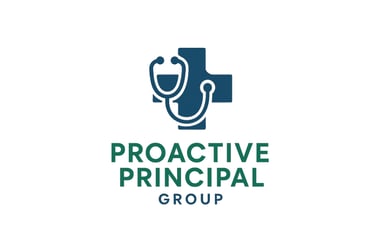New AI Liability Standards: California's new AI laws could impact your practice. Don't fly blind. Click to read the Blog & get the Free AI Risk Strategy Checklist
Cigna's New Auto-Downcoding Policy (R49): A Crucial Guide for Physicians
Includes Action Plan & Templated Letter for Auto-Downcoding Removal!
9/24/20254 min read


Starting October 1, 2025, Cigna Healthcare will implement its new Evaluation and Management (E/M) Coding Accuracy Policy (R49), a significant change set to impact how medical claims are processed and reimbursed across Georgia and the nation. This policy introduces an automated downcoding mechanism for specific high-level E/M services, meaning Cigna’s systems may unilaterally reduce the billed service level, leading to lower reimbursement for providers without a prior review of the full medical record.
R49 Policy Overview and Its Criticisms
The R49 policy specifically targets a limited, but financially critical, set of E/M CPT codes:
New patient visits: 99204, 99205
Established patient visits: 99214, 99215
Consultations: 99244, 99245
How it Works: Cigna's system will automatically downcode a claim by a single level (e.g., from 99215 to 99214) if it determines the initial claim data does not support the billed level. This process is automatic and happens without a manual review of the full medical record.
Criticisms: The policy has been criticized by the American Medical Association (AMA) and other state medical associations. Their primary concern is that it bypasses the standard and necessary practice of reviewing a patient's full medical record, which includes vital information on total time and medical decision-making (MDM)—the very criteria for correctly assigning E/M codes. This forces providers into a time-consuming and often costly manual appeals process. The administrative burden is not accidental but intentional by Cigna by effectively raising the cost of fighting a downcoded claim and discouraging physicians from fighting for appropriate payment. It is a passive-aggressive strategy that shifts the burden of proof and administrative cost entirely onto the healthcare professional.
Impact on Medical Practices
For medical practices across the country, the R49 policy carries a number of serious implications:
Lower Reimbursement: Downcoded claims will lead to a direct and immediate reduction in practice revenue.
Increased Administrative Burden: Your staff will have to spend significant time identifying downcoded claims and submitting appeals with the full medical record documentation.
Revenue Cycle Delays: The appeals process will delay payment, creating potential cash flow problems for your practice.
Patient Impact: The administrative and financial burdens could lead some practices to limit the number of Cigna patients they see or even reconsider network participation, which could reduce patient access to care in your state.
Fighting Back: Legal and Regulatory Avenues for Georgia* Physicians
*While the information contained herein focuses specifically on Georgia physicians, it may be applicable in your local jurisdiction. It is recommended that you check your state laws and regulations and consult with a legal professional or compliance expert in your jurisdiction.
Georgia physicians are not without recourse. Cigna, as a licensed insurer in the state, is subject to the statutes and regulatory authority of the Georgia Office of Insurance and Safety Fire Commissioner (DOI). Key legal avenues for challenge include:
Georgia Prompt Pay Act (O.C.G.A. § 33-24-59.14): This act mandates that insurers either pay a claim or provide a reason for denial within specific timelines (15 working days for electronic claims, 30 calendar days for paper). Cigna's automatic downcoding and forced manual reconsideration may be seen as an improper delay of appropriate payment.
Georgia Unfair Claims Settlement Practices Act (O.C.G.A. § 33-6-34): This statute prohibits insurers from "refusing to pay claims without conducting a reasonable investigation." Downcoding based on minimal claim data without a full medical record review may be considered a failure to conduct a reasonable investigation.
A Powerful Georgia Precedent: In 2022, the Georgia DOI fined Anthem/Blue Cross Blue Shield $5 million for "improper claims settlement practices" which included downcoding and "violations of the Prompt Pay Act." (Read more about it here.) This was the largest fine in the agency's history and shows the Georgia DOI's willingness to act against insurers for systemic claims issues. This precedent is a strong blueprint for Georgia physicians to follow to build a similar case against Cigna.
Action Plan for Physicians
Here's a multi-phased action plan to prepare for and respond to Cigna's new policy:
Phase 1: Proactive Measures (Before October 1, 2025)
Bulletproof Documentation: Meticulously document every patient encounter, explicitly justifying high-level E/M codes based on total time and medical decision-making (MDM). The medical record should fully narrate the full complexity of the visit, including comprehensive patient history, physical examination findings, and reasoning behind the medical decisions made.
Staff Training & Audits: Conduct internal audits of coding and documentation to minimize inconsistencies and ensure compliance with AMA and CPT guidelines. Ensure claims are submitted correctly at the outset.
Phase 2: Reactive Measures (After Downcoding Occurs)
Scrutinize EOPs: Immediately review every Cigna EOP for downcoded claims. A downcoded claim not identified and challenged will be considered accepted by the provider.
Submit Appeals or Reconsideration Promptly: Submit the full medical record documentation via fax other trackable method for appeal. Keep a record of all submitted records and create a submission log.
Escalate Internally: If initial reconsideration fails or CIGNA's response is unduly delayed, escalate to a Cigna medical director, maintaining meticulous records of all communications.
Phase 3: Leveraging State Regulators and Medical Associations
Engage Your Local Medical Association: Report all instances of downcoding to your local medical association. In Georgia, report to the Medical Association of Georgia (MAG). Collective data strengthens advocacy efforts.
File a Formal Complaint with the State Regulators: There is power in numbers. A high volume of complaints can trigger a regulatory investigation and action. In Georgia, reporting to the Georgia DOI and citing the BCBS precedent, is your most powerful tool.
By combining meticulous internal practices with robust advocacy and formal complaints to state regulators, physicians can effectively challenge Cigna's R49 policy and protect their practices and patients.
Template Letter for R49 Program Removal
The following template letter is designed to be a powerful tool. Physician's must customize the bracketed sections to your practice. Get it here ➡️ Template Letter for R49 Program Removal
🔔 Get Help Today
Navigating these complex regulations and fighting for every claim can be overwhelming. Don't go at it alone. If your practice is concerned about Cigna's new policy, is already fighting audits, or needs help with the appeal process, our Audit First Responder Defense Service Package is designed specially for you.
➡️ Schedule a consultation today to learn how we can help you fight back and protect your revenue.
This information contained herein is provided solely for general information and educational purposes and shall not constitute legal advice, legal opinions, or legal conclusions.
© 2025. All rights reserved. | Proactive Principal Group, LLC | Disclaimer | Privacy Policy | Terms of Service


info@ppgconsultants.com
Monday - Thursday: 9am - 5pm
Friday: 9am - 3pm
Mailing Address: 1445 Woodmont Ln, NW # 2408, Atlanta, GA 30318
Proactive. Strategic. Empowered.
Your physician's advocate and navigator. We help you move with clarity. Let us protect your license and livelihood.
678-203-8704
Contact Us
